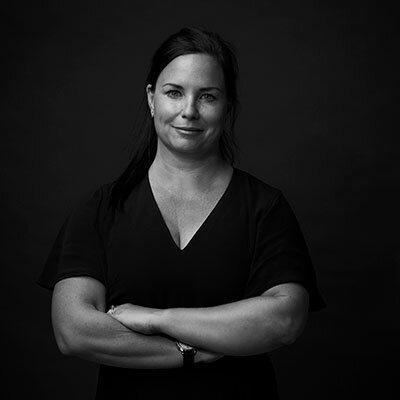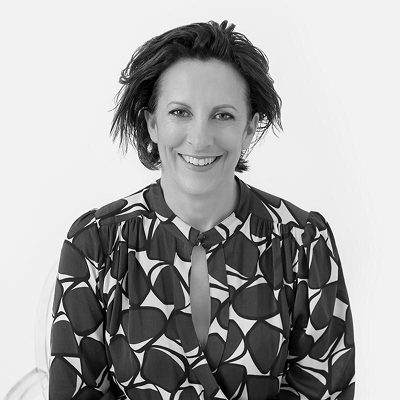
ASKING FOR A FRIEND
How do I deal with feelings of self-doubt?
ASKING FOR A FRIEND - QUESTION
Self-doubt is the uninvited guest that crashes every important moment, from big presentations to wondering if you deserve to be in the room. This honest discussion tackles how to deal with feelings of self doubt, from understanding where those voices come from to practical daily strategies for rewriting your internal script. Mental health expert Martine Beaumont and CEO Jasmin Bedir share surprisingly candid insights about imposter syndrome, the power of physical presence, and why even the most successful people feel like they're winging it half the time. Essential reading for anyone who's ever wondered if they're good enough (spoiler: you are).
Self-doubt is like that uninvited guest who shows up at the worst possible moments – right before a big presentation, when you're about to speak up in a meeting, or when you're wondering if you even deserve to be in the room. It's one of those universal human experiences that can range from mildly annoying to completely paralysing.
This question was answered by Martine Beaumont – founder and CEO of Select Wellness and Select Counsellors, with over 30 years of experience as a psychotherapist, executive coach, and counsellor specialising in workplace wellbeing, and Jasmin Bedir – CEO of Innocean Australia, who has led major accounts across every type of creative agency and founded Fckthecupcakes to fight workplace misogyny. Andy Wright served as host – Founder of Never Not Creative, Co-Chair of Mentally Healthy, and CEO of Streamtime.
The spectrum of self-doubt: when it's normal and when it's not
Martine starts with a reassuring reality check: "I think it's natural as a human being to experience feelings of self-doubt. In fact, sometimes I get concerned when people never experience some degree of self-doubt." A little self-doubt shows self-awareness – it's when it becomes paralysing that we need to pay attention.
"If it's up there on the continuum and it can become paralysing, you know the impact of self-doubt and it can really stop you from contributing, it can stop you from even being in the room, it can stop you from putting your hand up for projects," Martine explains. When self-doubt reaches this level, it's no longer serving you – it's sabotaging you.
The deep roots: where self-doubt comes from
How do I deal with feelings of self doubt often requires understanding where those feelings originated. Martine explains that this level of self-doubt is "pretty hardwired" and usually stems from childhood messages. It can go two ways: "You might have had a lot of messages as a child – you're not good enough, a lot of criticism, you know, who are you, those sorts of messages which you then take into your future life."
But surprisingly, the opposite can also create problems: "You might have had a parent who was constantly telling you how wonderful you were – like you might have finished last in the running race but they told you you were a winner and then you've got no sense of yourself and who you are." Both extremes can feed into adult self-doubt.
Rewriting the script: practical strategies
Since these patterns are deeply ingrained, Martine suggests working with a therapist if self-doubt is severely impacting your life. But she also offers a practical daily strategy: "I say okay you've been given this script and you repetitively heard this script and I've got this wonderful woman who I listen to called Tara Brach and she's an American psychologist. She releases a talk each week on all of these topics – self-doubt and accepting imperfection, accepting ourself."
Her prescription? "I prescribe my clients to listen to one of her talks for 15 minutes a day religiously so it's almost like they're developing an alternative script so that eventually that script becomes their go-to script rather than the script of I'm not good enough or there's something wrong with me."
The body leads the mind
Martine also emphasises the physical aspect of confidence: "Often the body will lead the mind, so Amy Cuddy who's another psychologist, she wrote an interesting book on this – even if you're feeling the self-doubt, if you could physically show up in your body as embodying strength and confidence, then that has an impact on your ability to overcome that self-doubt."
This isn't about fake-it-till-you-make-it nonsense – it's about using your physical presence to support your mental state when you're dealing with feelings of self doubt.
The great equaliser: everyone's human
Here's where Martine gets delightfully practical: "We're all human, you know, and so it's all shared humanity. Just because someone's got a title or being paid more, it doesn't make them more or less human." Her advice? "I get people imagining them naked." Andy jumps in with his own version: "Imagine everyone sitting on the toilet – it's something we all do."
The point isn't to be crude – it's to remember that everyone, regardless of their position or apparent confidence, is fundamentally human. That intimidating CEO? They've had moments of doubt too.
When the system is the problem
Importantly, Martine reminds us that not all self-doubt is about personal pathology: "Sometimes imposter syndrome isn't imposter syndrome – sometimes it's actually a sick system that you're working in. Sometimes it's a system that is giving you the message that you're not allowed to speak up or your word is not worth as much as somebody else."
This is crucial – sometimes the problem isn't you, it's the environment you're in. "Everything doesn't have to come back to your own pathology. Have a think about the pathology of the system you're working in as well and sometimes it's good to shift a bit of responsibility back onto that."
The CEO's confession: even leaders doubt themselves
Jasmin brings a refreshing dose of honesty from the leadership perspective: "I've got slides that are six metres high that say Jasmine I've got no idea what I'm doing, which is how I feel half of the time. People think you've got all the answers and I feel like I'm 16 walking around and people want answers and life advice from me and I don't really know."
She continues: "There's nothing wrong with you if you feel sometimes that you're totally sort of inadequate because this just happens to all of us. You can have all the qualifications, you know exactly what you're doing and yet you're feeling this way."
Even Martine, as a therapist, experiences this: "When you've got issues going on in your own life and then you're on a session like this and you're thinking well who am I to tell anybody anything."
The balance: humility without paralysis
The conversation touches on an important point – a little self-doubt can actually be healthy. As Andy notes: "If you don't have a little bit of imposter syndrome, you don't have a little bit of self-awareness. In fact, some of the people at the event would say if someone doesn't have a bit of it and thinks they're just great at everything, they're the people to run a million miles away from."
Jasmin agrees: "A little bit of humility goes a long way." The goal isn't to eliminate self-doubt entirely – it's to prevent it from stopping you from contributing your talents to the world.
Moving forward with your doubts
How do I deal with feelings of self doubt isn't about achieving perfect confidence – it's about learning to function effectively despite those feelings. Whether it's rewriting your internal script, using your body language to support your mind, remembering everyone's shared humanity, or recognising when the system is the problem, there are practical ways to work with self-doubt rather than being paralysed by it.
Remember, even the most successful people in the room are probably wondering if they belong there too. The difference is they've learned to show up anyway. Like a cat confidently strutting into a room full of dogs, sometimes the best approach is to act like you belong until you remember that you actually do.
our guests
Industry Leader

Jasmin Bedir
Innocean
Mental Health Expert

Martine Beaumont
Select Wellness
Host

